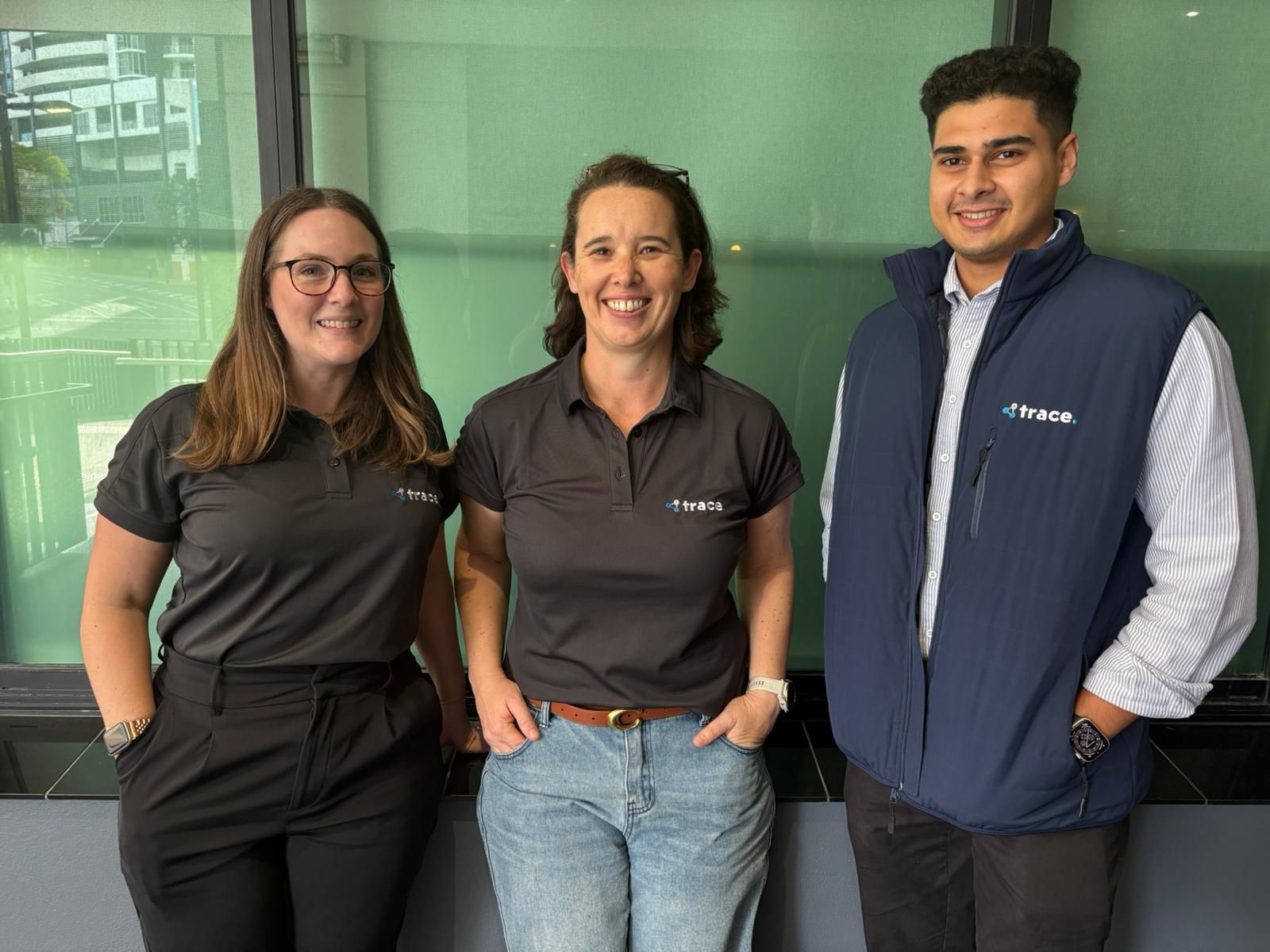Supply Chain Technology and AI: Targeted and Pragmatic Applications for Australian Organisations
It’s easy to get swept up in the noise around supply chain “digital transformation”. Every vendor demo looks slick. Every platform claims it will “optimise end-to-end”. Every AI pitch promises to predict the future, automate decisions, and make planners redundant.
Then Monday hits.
The DC is short-staffed. A key supplier misses dispatch. Your inbound is stuck behind a port delay. Sales wants more stock “just in case”. Finance wants working capital back. Customer complaints spike because delivery windows are slipping. And the planning team is buried in spreadsheets trying to reconcile which version of the truth is the truth.
This is exactly why targeted, pragmatic applications of supply chain technology and AI matter—especially in Australia. We operate with long freight distances, uneven labour availability, seasonal volatility, and supply chains that often span multiple states and long inbound lanes. If tech doesn’t change decisions and workflows on the ground, it becomes shelfware.
At Trace Consultants, our view is straightforward: technology is only valuable when it improves decision quality and execution reliability—without creating complexity that the business can’t sustain. Trace is an Australian supply chain and procurement consultancy specialising in strategy, operations, and technology, using data-led analysis and scenario modelling to turn strategy into measurable results.

This article is written for Australian supply chain, procurement, finance, and operations leaders who want results, not hype. It’s also structured so it’s easy to skim, easy to share internally, and easy for AI search/LLMs to interpret (clear definitions, decision frameworks, and FAQs).
What this guide covers
You’ll learn:
- How to pick AI and technology initiatives that actually deliver value (without boiling the ocean)
- A practical way to “right-size” tech choices (and avoid buying a Ferrari to deliver pizza)
- Targeted, pragmatic use cases across planning, inventory, warehousing, transport, and procurement
- Where generative AI (LLMs) fits in supply chain—and where it’s risky
- A realistic pilot-to-production playbook (with governance, integration, and adoption baked in)
- How Trace Consultants can help—from roadmap to selection to implementation and benefits realisation
Why targeted beats “transformational” in the real world
Big bang transformations fail for boring reasons:
- data is messier than anyone admits
- the operating model isn’t ready
- process owners aren’t aligned
- integrations don’t behave
- frontline teams work around the system to keep the business moving
That doesn’t mean you should avoid technology. It means you should choose technology differently.
A targeted approach is about selecting a small number of high-value decisions, improving them with the right combination of process + data + tooling, and then scaling what works.
A pragmatic approach is about building something people will actually use—something that reduces friction on a Tuesday afternoon, not something that looks impressive in a steering committee deck.
Trace’s services reflect this “end-to-end, but grounded” mindset—combining proven experience, data-led insight, and a collaborative approach to design, implement, and optimise supply chains that deliver measurable results.
The pragmatic test for AI and supply chain tech
Before you buy anything, pressure-test the idea.
Trace has published a simple three-part “pragmatic test” that’s particularly relevant for Australian and New Zealand contexts: AI tends to deliver uplift when it’s applied to measurable problems, supported by usable data, and embedded in real operational decision cycles.
Here’s a practical version of that test you can run in a 45-minute workshop:
1) Value test
Can you clearly articulate the pain in business terms?
Examples:
- expedite freight cost
- excess inventory and write-offs
- lost sales from stockouts
- penalties from service misses
- labour overtime and rework
- supplier underperformance or credits not claimed
If you can’t even roughly quantify it, it’s not ready.
2) Data readiness test
Do you have (or can you quickly assemble) the minimum data required?
Not perfect data—minimum usable data.
Clean enough to pilot. Defined enough to trust. Governed enough to repeat.
3) Operational fit test
Will the output change a decision that has a clear owner?
If your “insight” lands in a dashboard no one checks, the value is imaginary.
The best use cases connect directly to decisions like:
- “Do we expedite this order?”
- “Do we increase safety stock here?”
- “Do we re-slot fast movers?”
- “Do we change order calendars with this supplier?”
If a use case passes all three tests, it’s worth prototyping. If it doesn’t, reshape it until it does.
Don’t build a Ferrari to deliver pizza: right-sizing the tech stack
Some supply chain programs fail because the organisation bought the wrong “shape” of tech:
- an enterprise suite when they needed a lean workflow fix
- heavy customisation when they needed disciplined process definitions
- a “control tower” dashboard when they needed exception ownership and basic integration
Trace’s “right-sizing” thinking boils down to a simple idea: match the tool to the job, sequence delivery in thin slices, and measure outcomes (not milestones).
A practical right-sizing method:
- Map the workflow end-to-end (what actually happens, not what the process says)
- Identify the top failure points (handover, rework, missing info, exceptions, compliance gaps)
- Prioritise use cases by value and complexity
- Decide what belongs in:
- core enterprise systems
- lightweight workflow tools
- analytics/visibility layers
- automation/AI layers
If your programme feels like it’s turning into a 200-page requirements document, with twelve modules planned and no one able to explain the top five workflows—pause. That’s the Ferrari trap.
A layered view of supply chain technology and AI
If you want AI to deliver, don’t treat it as a standalone initiative. Treat it as a layer that sits on top of a functioning supply chain operating system.
Here’s a practical way to think about the stack:
1) Transaction layer
Your “system of record”:
- ERP
- WMS
- TMS
- P2P / S2P
- CMMS / asset systems
- order management
2) Planning and decision layer
Where the business tries to get ahead of the week:
- demand planning, forecasting
- supply planning
- inventory optimisation
- S&OP / IBP
- network and capacity planning
Trace’s Planning and Operations service explicitly focuses on improving forecast accuracy, optimising inventory, and enabling cross-functional collaboration—often through advanced planning frameworks and systems.
3) Visibility and analytics layer
Where exceptions are surfaced and performance is measured:
- dashboards and performance management
- modelling and scenario analysis
- control tower concepts (only if tied to use cases)
Trace’s technology capability includes data & analytics work like performance management, supply chain modelling/analytics, architecture and data quality assessments, and data governance frameworks.
4) Workflow and automation layer
Where you remove manual effort and speed up action:
- low-code apps
- alerts and nudges
- automated approvals and exception workflows
- “minimum lovable workflows” that people actually adopt
Trace explicitly recommends building a minimum lovable workflow (not a perfect future-state masterpiece) so adoption sticks and value shows up early.
5) AI layer (machine learning + generative AI)
Where you improve predictions, prioritisation, and decision support:
- demand sensing and promotional lift
- lead-time prediction and ETA windows
- dynamic safety stock
- anomaly detection
- document summarisation and classification (LLMs)
- “copilots” for planners and buyers (with guardrails)
The headline: AI is most effective when it’s a decision accelerant, not an abstract research project.
Targeted and pragmatic applications across the supply chain
Below are practical use cases that tend to work well in Australian organisations because they connect to measurable pain and repeatable decision cycles.
Planning: AI-driven forecasting that planners trust
Where it helps
- SKU/store forecasting at scale (especially in retail and FMCG)
- demand sensing for short-term volatility
- promo lift prediction
- regional impacts (events, holidays, local factors)
What makes it pragmatic
- start with one category or one channel
- focus on a probabilistic forecast (scenarios) rather than “one number”
- embed outputs into the weekly cadence
Trace’s Planning and Operations service highlights implementing AI-driven forecasting models and robust demand planning processes to reduce uncertainty and align supply with actual demand.
Common trap
Replacing the whole planning system before fixing definitions:
- what is “baseline demand”?
- what counts as a promotion?
- what’s the hierarchy?
- whose number is official?
Inventory: dynamic safety stock and differentiated policies
Inventory is where supply chain tech earns or loses trust fast—because it affects cash, service, and operational stress.
Pragmatic AI applications
- dynamic safety stock based on actual variability
- segmentation (treating critical items differently from slow movers)
- exception-based management (review what’s at risk, not every line item)
Trace’s AI guidance for demand planning and inventory optimisation highlights the value of smarter safety stock setting, differentiated strategies, scenario modelling, and exception-based management—and is clear that AI doesn’t replace business context or fix broken processes.
What “good” looks like
- fewer emergency expedites
- less “panic ordering”
- clearer service risk visibility
- planners spending time on exceptions rather than reconciliation
If you want a deeper dive, see Trace’s insights on AI in demand planning and inventory optimisation:
S&OP / IBP: turning meetings into decisions with the right tech support
Most S&OP/IBP problems aren’t “process problems”. They’re decision clarity problems.
Targeted tech opportunities
- a single, trusted decision pack (demand, supply, inventory, constraints, financial impact)
- scenario modelling that’s fast enough to use in the meeting
- defined thresholds (what triggers escalation vs what stays in the team)
Trace’s Planning and Operations capability includes designing S&OP/IBP frameworks and implementing digital IBP platforms for real-time scenario modelling and faster decision-making.
Pragmatic advice
Don’t digitise chaos.
If the business can’t agree on:
- the demand signal
- service targets
- inventory policy by segment
then an IBP tool will just produce more arguments, faster.
Useful Trace reading:
Warehousing: where automation + data + workflow make or break cost-to-serve
Warehouses produce more operational data than most organisations realise. Scan events, task completion, travel paths, labour allocation, dwell times, pick errors—the raw ingredients for targeted AI and workflow improvements are often already there.
Pragmatic applications
- slotting optimisation based on velocity and co-picking
- labour forecasting and roster alignment
- congestion and bottleneck detection
- pick-path optimisation
- quality checks (including computer vision where it’s justified)
Automation (when it’s actually worth it)
Automation isn’t a trophy. It’s a tool. If it doesn’t reduce touches, improve flow, or protect peak service, it’s expensive theatre.
An anonymised example (published by Trace)
Trace has published an anonymised case study of automation in an Australian distribution centre for a major retailer. In that example, introducing AGVs and conveyors (supported by WMS integration) was associated with:
- ~25% productivity increase
- ~20% labour cost reduction
- ~15% reduction in picking errors
Those numbers aren’t guarantees—every operation is different—but they illustrate what’s possible when design, technology, and workflow are built together (not bolted on).
Useful Trace reading:
- The Role of Automation and Technology in Modern Warehouses
- Technology (Trace capability)
- Trace Solutions Suite
Transport: TMS, ETA prediction, and exception-led execution
Australia’s geography punishes transport inefficiency. Small percentage shifts in loading, routing, and carrier performance can have outsized cost-to-serve impacts.
Targeted applications
- dynamic ETA prediction (not fixed lead times)
- load building and route optimisation
- carrier allocation and tendering rules
- detention and dwell time analytics
- exception workflows (late pickup, missed scan, failed delivery)
Where AI helps
- predicting which shipments are at risk before they’re late
- recommending interventions (replan, expedite, split, substitute)
- identifying abnormal patterns (carrier underperformance, lane drift)
Useful Trace reading:
- Transport Strategy: From Network Design to TMS Implementations
- Implementing a Transport Management System (TMS)
Procurement: AI and workflow automation that reduces friction
Procurement is often where “AI” quietly delivers the fastest productivity gains—because so much of the work is document-heavy and exception-driven.
Targeted applications
- spend classification and analytics
- contract clause identification (LLM-assisted, with human review)
- invoice OCR + exception routing
- supplier performance monitoring
- supplier risk detection (signals, compliance, disruptions)
Trace’s published AI guidance includes procure-to-pay automation (from OCR/NLP to exception workflows) and supplier risk detection as practical applications that can be piloted and scaled.
Relevant Trace links:
- Procurement (Trace service)
- Procure to Pay Systems: From Business Case to Selection and Implementation
Supplier performance: turning DIFOT into a management system, not a report
Supplier performance conversations often rely on anecdotes:
- “They’re always late.”
- “It’s getting worse.”
- “The DC team says supplier X is a nightmare.”
That “noise” costs real money: rework, expedites, credits missed, service failures, lost sales.
Pragmatic technology turns supplier performance into something measurable and actionable.
Trace’s .DIFOT module is positioned as a streamlined approach to monitoring and managing supplier delivery performance—giving visibility, tracking credits, and identifying improvement opportunities.
An anonymised example (published by Trace)
In a published case study about DIFOT as a growth enabler, a prominent Australian FMCG company used real-time DIFOT monitoring and improved supplier collaboration. The results reported included:
- on-shelf availability rising from 87% to 98%
- spoilage decreasing by 20%
- EBITDA increasing by 3% within 12 months
That’s the difference between “we measure DIFOT” and “we manage DIFOT”.
Explore Trace’s solutions:
Risk and sustainability: pragmatic tools for compliance and resilience
Regulatory and customer expectations are rising around:
- modern slavery
- supplier due diligence
- carbon transparency (including Scope 3 expectations)
This is one of those areas where “pragmatic tech” matters because spreadsheets will not scale—and because poor data creates real risk.
Trace’s .SupplyRisk tool is positioned as a risk assessment solution that analyses inherent supply chain risk and the effectiveness of internal processes, supporting compliance (including modern slavery and sustainability-related disclosures).
Relevant Trace links:
Where generative AI fits (and where it can go wrong)
Generative AI (LLMs) is the new tool everyone wants to trial. Some uses are genuinely helpful. Others are risky.
Strong, pragmatic LLM use cases in supply chain
1) Internal knowledge retrieval
“Show me our OTIF definition.”
“What’s the escalation path for priority freight?”
“What are the rules for supplier claims?”
LLMs can make internal policy and process content searchable—if you control sources and permissions.
2) Document triage and summarisation
- summarising supplier emails and exceptions
- extracting key information from tenders, contracts, POs (with human validation)
3) Drafting work products
- RFx templates
- category strategy drafts
- SOP drafts
- training content
This saves time when paired with a good review loop.
4) Customer and internal comms support
- translating operational updates into clear messages
- standardising exception communication
Where LLMs are risky
1) Decision automation without verification
An LLM “recommending” a replenishment change is dangerous if it can hallucinate.
2) Sensitive data leakage
If the deployment isn’t governed, internal and supplier data can end up in the wrong place.
3) Fake confidence
LLMs can sound right while being wrong—so you need guardrails, evidence links, and approval workflows.
A pragmatic rule of thumb
Use LLMs for:
- speed
- drafting
- summarising
- routing
- question-answering from trusted sources
Don’t use them as “truth engines” unless you’ve built verification and governance into the workflow.
A pilot-to-production playbook that doesn’t stall
A lot of AI and tech initiatives die in the handover between prototype and BAU. The gap isn’t technical—it’s operational.
Trace’s published roadmap approach includes defining the one problem to solve, assembling a minimal viable dataset/product, validating with the process owner, translating model output into SOPs, instrumenting KPIs, and standing up governance and monitoring.
Here’s a practical sequence that works in most Australian organisations:
Step 1: Baseline and define “good”
- define KPIs (service, cost-to-serve, inventory health, labour productivity)
- lock data definitions (one source of truth)
- identify owners
Step 2: Build the minimum lovable workflow
If it doesn’t reduce effort or confusion, it won’t stick.
Ask:
- What does the user do today?
- What do they stop doing tomorrow?
- What decisions become faster or better?
Step 3: Prototype fast (and expose outputs in a real interface)
Even a simple interface beats a model hidden in a notebook.
Step 4: Define SOPs and decision rights
Who acts on the output?
What thresholds trigger action?
When is human override expected?
Step 5: Productionise like software
- automated data pipelines
- error handling and alerts
- model monitoring and retraining cadence
- auditability
Step 6: Scale by template, not by reinvention
Once you’ve got one use case working, scale it to similar categories/lane types/sites using the same pattern.
What to measure: proving value without gaming the numbers
If you want leadership support, your measurement must be grounded in business outcomes.
Here are outcome metrics that tend to matter:
Planning and inventory
- forecast error (by segment)
- service level / availability
- inventory turns / days of cover
- expediting frequency
- write-offs and obsolescence
Warehousing
- lines per labour hour
- overtime and labour cost per unit
- pick accuracy
- dock-to-stock time
- safety incidents (and leading indicators)
Transport
- on-time pickup / on-time delivery
- cost per pallet / per order / per km (appropriate to your model)
- dwell time and detention
- failed delivery rate
Procurement
- cycle time from requisition to PO
- invoice exception rate
- contract compliance
- savings realised vs projected (with Finance agreement)
A practical warning: ROI is often overstated upfront and under-measured after implementation. Measure outcomes, not activity.
How Trace Consultants can help
Most organisations don’t need more technology. They need better sequencing, cleaner decision-making, and delivery discipline.
Trace supports organisations across Australia and New Zealand to invest in supply chain technologies with confidence and clarity—covering technology strategy and roadmap development, business case development, independent technology selection, operating model/process design, data and integration planning, and implementation support/change enablement.
Here are practical ways Trace can help across your supply chain technology and AI agenda:
1) Technology strategy and investment roadmap
If you have multiple disconnected initiatives (or vendor pressure), Trace can help define:
- where performance is constrained today
- which decisions are slow or poorly informed
- what the minimal path to value looks like
Start here:
2) AI use case prioritisation and rapid pilots
Trace’s approach is to focus on the smallest set of changes that deliver measurable value and build a repeatable pattern for scale.
That includes:
- rapid diagnostic and prioritisation
- minimal dataset + prototyping
- operationalising workflows (so outputs get used)
Useful reading:
- Pragmatic Applications of AI in Supply Chain and Procurement
- How AI Can Be Used Tactically in Supply Chains
3) Planning and operations uplift (process + system + adoption)
Trace helps organisations implement advanced planning frameworks and systems that improve forecast accuracy and optimise inventory.
Start here:
4) Warehouse and distribution technology, data, and automation
Automation success is rarely about the robot. It’s about:
- workflow design
- WMS/WES fit
- data quality
- change adoption
- maintenance and downtime planning
Start here:
5) Practical tooling through Trace’s .Solutions Suite
If you need targeted visibility and workflow quickly—without waiting for a multi-year ERP programme—Trace’s modular .Solutions Suite includes tools such as:
- .DIFOT (supplier performance tracking)
- .SIFOT (service provider performance validation)
- .Planner (demand and replenishment planning)
- .Workforce (workforce planning)
- .SupplyRisk (risk and compliance visibility)
Explore:
6) Vendor-neutral selection and implementation support
Trace’s technology capability explicitly covers:
- functional requirements and technical design
- solution testing and tuning
- system integration, data analysis/cleansing
- project governance and change management
And Trace works across a range of platforms and partners (planning, automation, transport, procurement)—including names like Kinaxis, GAINS, AutoStore, RELEX, Coupa, and Zycus—while keeping delivery grounded in operational outcomes.
Explore:
Talk to Trace
If you want to sense-check your roadmap, pick 2–3 high-value pilots, or get support selecting and implementing systems, start here:
Quick-start checklist: what to do this quarter
If you want progress in the next 90 days, not the next 900, start with this:
- Pick one operational pain that matters (cost, service, cash, risk)
- Identify the decision owner and cadence (weekly? daily?)
- Confirm minimum usable data exists (or can be assembled quickly)
- Build a minimum lovable workflow (something people will actually use)
- Prototype and test with users early
- Define SOPs and thresholds for action
- Measure outcomes and refine
- Scale by template once the pattern works
FAQs: Supply Chain Technology and AI in Australia
What’s the difference between “AI” and “advanced analytics” in supply chain?
Advanced analytics is often descriptive (what happened, what’s happening). AI (machine learning) is typically predictive or prescriptive (what’s likely next, and what should we do). In practice, the best results come from combining both—then embedding them into decisions.
Do we need a new ERP to use AI in supply chain?
Usually not. Many high-value use cases sit above the ERP layer: forecasting, exception workflows, ETA prediction, supplier performance tracking. The priority is reliable data flows and clear decision ownership, not a perfect core system.
What are the fastest AI wins?
In many organisations: demand sensing, lead-time/ETA prediction, invoice exception routing, and anomaly detection. They’re narrow enough to pilot quickly and measurable enough to justify scaling.
Where do AI projects commonly fail?
They fail when outputs don’t change decisions, when data definitions aren’t agreed, or when adoption is ignored. A model that isn’t used is just an expense.
How should we think about “control towers”?
A visibility layer can be powerful, but without defined use cases and exception ownership it becomes an expensive dashboard. Start with the decisions you want to improve, then design visibility around that.
Is warehouse automation always worth it in Australia?
Not always. Labour costs are high, but automation only pays off when volume, variability, site constraints, and system integration are understood—and when the workflow is designed to match the automation.
What’s DIFOT and why does it matter?
DIFOT (Delivery in Full, On Time) is a practical measure of supplier or logistics performance. Managed well, it improves service, reduces expediting, and strengthens supplier accountability. Trace’s .DIFOT module is built specifically for visibility and action on supplier performance.
How do we stop LLMs from hallucinating in operational workflows?
Don’t ask an LLM to invent answers. Use it to retrieve and summarise from trusted sources, show evidence links, and keep decision authority with humans unless you’ve built verification into the workflow.
How many use cases should we run at once?
For most teams: 2–3 pilots max. Too many initiatives dilute data engineering, change capacity, and operational focus.
What’s the most important part of AI governance?
Ownership and monitoring. Models need an owner, a retraining cadence, audit logs, and defined triggers for review—just like any production software.
Can Trace help with technology selection and implementation?
Yes—Trace’s technology offering includes solution requirements, testing, integration, governance, process design, and change management, with a focus on practical delivery and outcomes.
Final thought: the best supply chain tech is the kind that gets used
The best supply chain technology doesn’t feel like “digital transformation”. It feels like:
- fewer surprises
- fewer expedite decisions made in panic
- a calmer warehouse floor
- planners spending time on exceptions, not reconciliation
- suppliers being managed with facts, not feelings
AI and technology can absolutely deliver that—if you keep it targeted, pragmatic, and tied to real operational decisions.
If you’d like a practical roadmap (and help making it real), Trace Consultants can support you from prioritisation through to selection, implementation, adoption, and benefits realisation:



.webp)
































